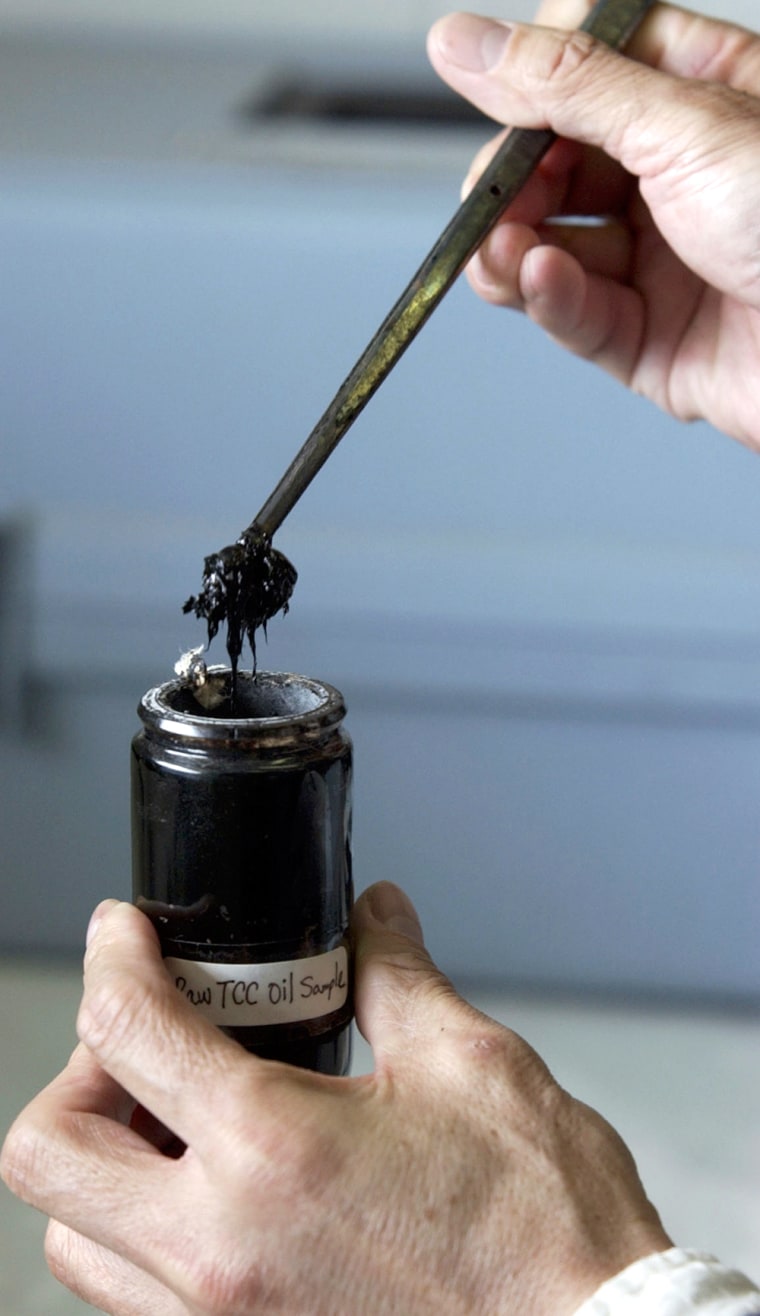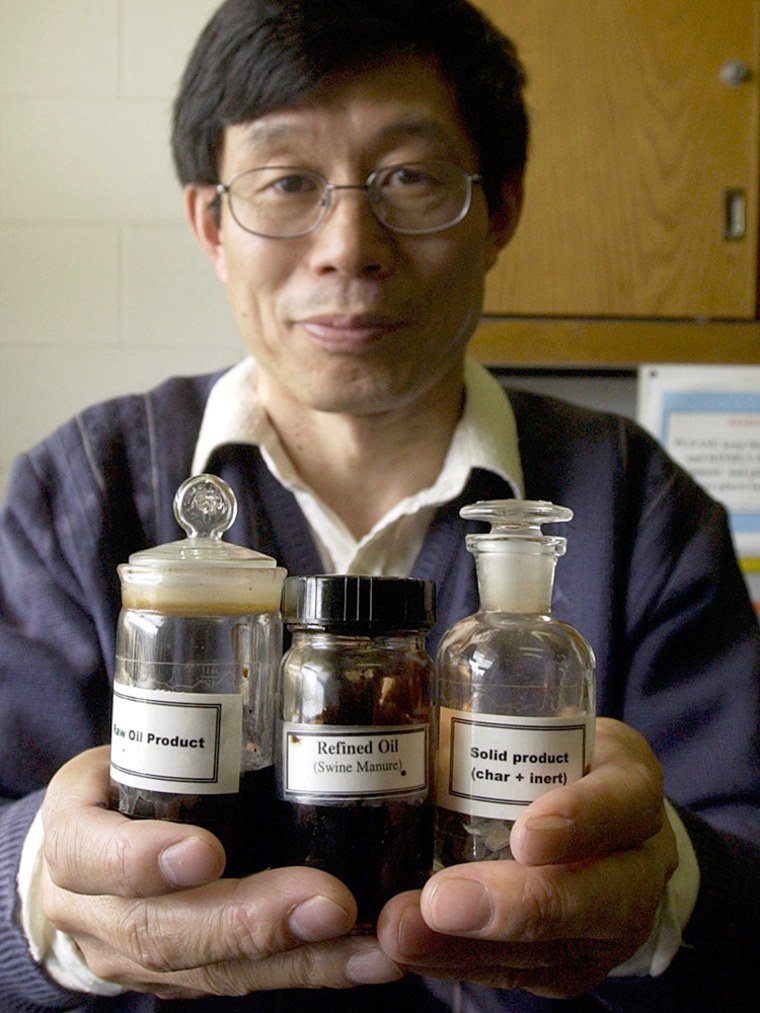A University of Illinois research team is working on turning pig manure into a form of crude oil that could be refined to heat homes or generate electricity.
Years of research and fine-tuning are ahead before the idea could be commercially viable, but results so far indicate there might be big benefits for farmers and consumers, lead researcher Yanhui Zhang said.
“This is making more sense in terms of alternative energy or renewable energy and strategically for reducing our dependency on foreign oil,” said Zhang, an associate professor of agricultural and biological engineering. “Definitely, there is potential in the long term.”
Speeding up the process
The thermochemical conversion process uses intense heat and pressure to break down the molecular structure of manure into oil. It’s much like the natural process that turns organic matter into oil over centuries, but in the laboratory the process can take as little as a half-hour.

A similar process is being used at a plant in Carthage, Mo., where tons of turkey entrails, feathers, fat and grease from a nearby Butterball turkey plant are converted into a light crude oil, said Julie DeYoung, a spokeswoman for Omaha, Neb.-based Conagra Foods, which operates the plant in a joint venture with Changing World Technologies of Long Island, N.Y.
Converting manure is sure to catch the attention of swine producers. Safe containment of livestock waste is costly for farmers, especially at large confinement operations where thousands of tons of manure are produced each year. Also, odors produced by swine farms have made them a nuisance to neighbors.
“If this ultimately becomes one of the silver bullets to help the industry, I’m absolutely in favor of it,” said Jim Kaitschuk, executive director of the Illinois Pork Producers Association.
Is the process economically viable?
Zhang and his research team have found that converting manure into crude oil is possible in small batches, but much more research is needed to develop a continuously operating reaction chamber that could handle large amounts of manure. That is key to making the process practicable and economically viable.
Zhang predicted that one day a reactor the size of a home furnace could process the manure generated by 2,000 hogs at a cost of about $10 per barrel.
Big oil refineries are unlikely to purchase crude oil made from converted manure, Zhang said, because they aren’t set up to refine it. But the oil could be used to fuel smaller electric or heating plants, or to make plastics, ink or asphalt, he said.
“Crude oil is our first raw material,” he said. “If we can make it value-added, suddenly the whole economic picture becomes brighter.”
